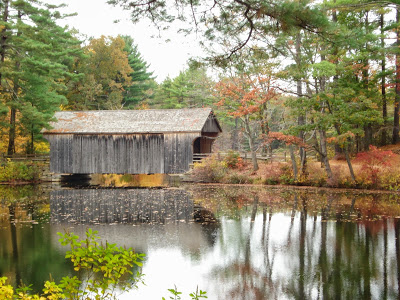Thomas Jefferson Denounces Slavery at Colonial Williamsburg

After my misspent youth as a wage worker, I’m having so much more fun as a blogger, helping other discerning travellers plan fun and fascinating journeys. Read more …

After my misspent youth as a wage worker, I’m having so much more fun as a blogger, helping other discerning travellers plan fun and fascinating journeys. Read more …

The Winery at La Grange in Haymarket, Virginia, features 5.6 acres of vineyards and a three-storey, red-brick, 18th-century manor house with a…
The random naked eyeful is starting to replace the random groping at airport rights checkpoints. Passengers at Phoenix Sky Airport may now…
The Sam Adams Alliance released this video today. WARNING: Contains offensive language. Leslie CarboneAfter my misspent youth as a wage worker, I’m…

The sawyer fed a long board through the water-powered saw. All around the open-air mill blazed the glory of New England in…

For the first time in nearly 50 years, the Washington, D.C., Latter-Day Saints Temple in Kensington, Maryland, is holding an Open House…

One of the things I love about blogging is all the fun opportunities it brings me. I spent last night tweeting the…
An interesting rationalization that has been repeated often enough by victors – be it in respect of the genocide of the native civilizations of the Americas, or the pillage of Africa, or of Asia – wuz done for their own good … a wonderful sign of the essential humanism of the Euro-American civilization (?)
(Dang it – “achieve”)
That’s a little simplistic, Dad. Jefferson did own slaves until the day he died, as you say, but he did so in an economy that required him to do so. Had Jefferson emancipated his slaves, he would have given a competitive advantage to his fellow Virgina planters, which would have in turn limited his political influence.
He used that influence, at all stages of his political career, to campaign against the expansion of slavery; this includes his 1784 Northwest Ordinance forbidding the practice of slavery in the territories which would become the Great Lakes states, and the abolition of the import slave trade, which he accomplished as President in 1807. By all accounts, Jefferson’s treatment of his own slaves was humane and respectful, if paternalistic. (His treatment of Sally Hemmings, well, that’s another story…)
Yes, there is an element of hypocrisy in Jefferson’s ownership of slaves, but I believe this is a rare case in which words are more telling than actions. As “Jefferson” himself proclaims in the video, change in the practice of slavery needed to be accomplished gradually. The steps Jefferson took toward this goal, I believe, were a greater accomplishment than he would have been able to achive otherwise.
Besides, “Damnol’craps” weren’t invented until Andrew Jackson came along…
Jefferson owned slaves till the day he died. Another hypocritical Damnol’crap.